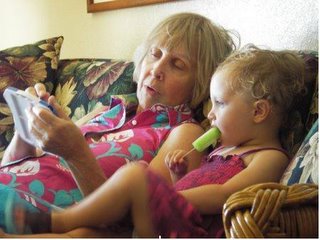
Dear Friends,
I am writing to you at a critical juncture in my friend’s, Diane Glass, life. She has been diagnosed with Alport’s Syndrome, a very rare inherited disease that affects the kidneys. Diane’s brother, Jack, died of Alport’s at the age of 57. Without a suitable kidney donor Diane may face the same fate.
Although Alport’s Syndrome affects both men and women it usually occurs earlier and with more severe symptoms in men. Almost all men will eventually have to be treated for end stage renal disease (ESRD). The percentage in women is one in ten. Diane is in the unlucky ten percent category.
I have known and been a friend of Diane’s for over thirty years. While she first worked for me in a business capacity, and Diane is now one of my most precious friends. Her ability to work unselfishly for others and to always be upbeat even as a kind of “Sword of Damocles” (aka Alport’s Syndrome) hangs over her head, is a true testament to her perseverance.

Even though Diane has suffered from severe asthma, skin cancer, hyperthyroidism, anemia and underwent coronary bypass surgery (all unrelated to Alport’s Syndrome) it never stopped her from doing things important to her. She helped her son with college and medical school and continues to take care of her elderly mother who lives in Alabama. And like most busy people she fills her plate even more with volunteer activities. She has given much to animal-related causes, to the National Kidney Foundation, the Special Olympics and to Mothers Against Drunk Driving.
There is no cure for Alport’s Syndrome. To survive, Alport’s patients with ESRD will require hemodialysis or a kidney transplant. The good news is that with a successful transplant, Alport’s patients can live a long, healthy life. The bad news is that Diane’s chances of getting a living-related transplant from a family member is not good. With a small family and a son who could very well develop Alport’s Syndrome in the future, Diane knows she must look outside her family for an available kidney.
So far Diane feels fairly well although her kidney function continues to decrease. She is at the
 point that very soon she will have to decide whether to go on dialysis or receive a kidney transplant. I’m sure you’ve heard that the only requirement for being a live kidney donor is that the blood type matches. Diane’s is O positive/negative. If Diane cannot find a living donor, she will go on dialysis and then be placed on the very long cadaver kidney list. Because there is a much better long-term success rate with a living donor, I promised Diane I would write to anyone who might be able to help make this happen. If you have any thoughts, please let Diane or me know.
point that very soon she will have to decide whether to go on dialysis or receive a kidney transplant. I’m sure you’ve heard that the only requirement for being a live kidney donor is that the blood type matches. Diane’s is O positive/negative. If Diane cannot find a living donor, she will go on dialysis and then be placed on the very long cadaver kidney list. Because there is a much better long-term success rate with a living donor, I promised Diane I would write to anyone who might be able to help make this happen. If you have any thoughts, please let Diane or me know.What I’m really hoping to do is to “flatten the search,” through my network of friends and their network of friends.
Thanks for your interest.
Sincerely,
Pete Phildius
phildius@avitrainc.com
781-575-9790 (office)
cc: Diane Glass
dglass@avitrainc.com
781-575-9790 (office)

No comments:
Post a Comment